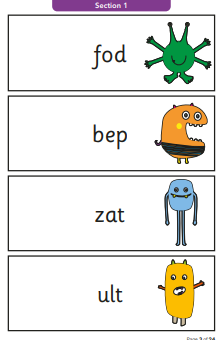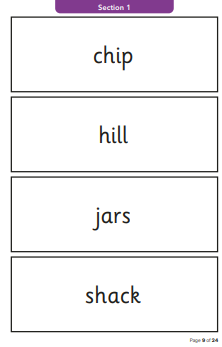
Farsley Westroyd Primary School & Nursery
Phonics
Early Reading
Intent
At Farlsey Westroyd, we use the UK’s leading synthetic phonics programme with the most respected and comprehensive professional development called Read, Write, Inc (RWI). The ethos of RWI aligns with our school’s aim to provide an engaging and inclusive reading curriculum that instils a love of reading and prepares children for future success.
This comprehensive literacy programme seamlessly combines decoding, comprehension, writing and spelling. With a consistent whole school approach, we utilise rigorous assessments, tracking and one to one tutoring to guarantee that each child makes progress.
What do phonics lessons look like?
Children are placed in progress groups with an assigned reading teacher. They are grouped according to their ‘challenge point’. Daily lessons are planned to meet the needs of children in the progress group. Lessons are designed so that all pupils are active participants with the opportunity to read words, write words and develop vocabulary and compression.
Early Years
At Farsley Westroyd nursery we ensure children develop listening and attention skills. Story and songs are at the heart of every day life in nursery. These are used to develop children’s vocabulary and understanding of words. Throughout the year, children take part in a range of activities linked to developing specific skills, such as identifying initial sounds, hearing sounds in the environment, alliteration and knowing how print prints goes from left to right. In the Summer term, the children that are moving up are introduced to key RWI strategies. These skills ensure children are prepared for phonics teaching in reception.
RWI lessons start from the beginning of the reception year. In the Autumn term, children take part in daily lessons where they are introduced to single letter sounds. They practise reading and writing this sound and making words using magnet tiles. Developing oral blending is a focus for this term, therefore listening games and singing songs and rhymes are a part of daily lessons. As children develop their writing and blending skills, children move to reading books and writing words, phrases and sentences. By the end of Reception, we expect children to be secure in reading and writing set 1 and some set 2 sounds.
Here is a video that helps you know how to say all the sounds
http://schools.ruthmiskin.com/training/view/CpBYFA92/1FxLD7sM
Key Stage One
In year 1, children follow a similar structure to reception but begin working on more complex sounds, continuing to read books that are matched to your reading level. Daily RWI phonics lessons last one hour. By the end of year 1, our expectation is for children to be secure in all set 1, 2 and 3 sounds. In year 2, daily RWI lessons continue until children are fluent and confident readers and have been assessed as completing the RWI programme. At this point, they transition from RWI lessons to whole class reading lessons.
Here is a video that explain what phonics is for parents and carers
http://schools.ruthmiskin.com/training/view/QP6QbrHN/J8Q17IjT
Phonics Screening Check
Phonics Screening check takes place in year one and it is a statutory assessment. The test assesses children’s ability to decode real and alien (nonsense) words. It is carried out on a one to one basis with a familiar adult. This check allows teachers to identify children that have met the expected standards in phonics and those who may need further support. Children who do not meet the expected standard, will receive targeted support in year 2 and retake the check in the Summer term. If a child does not meet the expected standard in year 2, they will continue to receive targeted support through interventions that suit children’s specific needs.
The screening check consists of 20 real words and 20 aliens (nonsense words) which children must decode and read. Here is an example:


Here is a link to a short video explaining the phonics screening check
http://schools.ruthmiskin.com/training/view/rBUmB17J/aUTY9ggy
How to support your child at home
Children begin by accessing a library book. These texts are sent home weekly. They are an opportunity to support a love of reading and build speaking and listening skills. As children start to blend words, they will be given a book that matches their reading level. This continues throughout reception and key stage one. A physical book is sent home weekly alongside an Ebook on Oxford Owl. Children at Westroyd receive a login which allows them access to the website. Virtual lessons and games are shared on the Reception class pages of the school website.
Here is a video about why we should read at home
http://schools.ruthmiskin.com/training/view/jADGPwnE/5Ar7YB1S
Here is a video about what to say to your child when reading at home
http://schools.ruthmiskin.com/training/view/0V6aAXWT/oBVMLL15